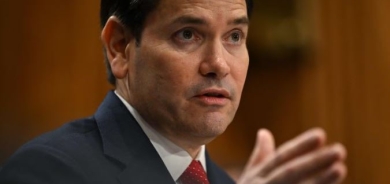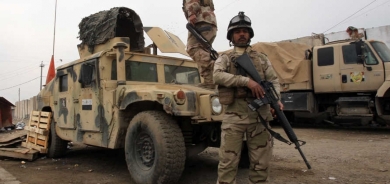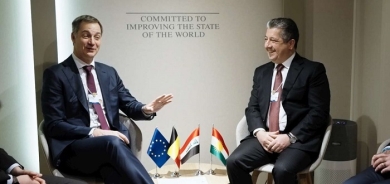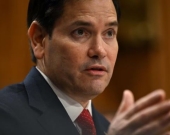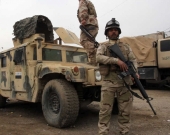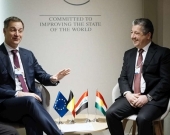President Raisi says Iran thwarted U.S. destabilisation

President Ebrahim Raisi said Iran's cities were "safe and sound" after what he called a failed attempt by the United States to repeat the 2011 Arab uprisings in the Islamic Republic, Iranian media reported on Saturday as protests continued for a 50th day.
Iran's clerical leadership has struggled to suppress demonstrations which erupted in September after the death of young Kurdish Iranian woman Mahsa Amini who had been detained by morality police for flouting strict laws on women's dress.
Hundreds of people, mostly protesters, have been killed according to activists in one of the most serious waves of unrest to sweep the country since the 1979 Islamic Revolution which overthrew the U.S.-backed Shah.
As Iranian authorities marked the anniversary this week of the seizure of the U.S. embassy in Tehran by radical students, President Joe Biden backed the protesters, saying: "We're gonna free Iran. They're gonna free themselves pretty soon."
Students and women have led many of the current protests, with women throwing off and burning veils in defiance of the strict dress codes and students chanting down officials on university campuses, according to unverified video footage.
"The Americans and other enemies sought to destabilise Iran by implementing the same plans as in Libya and Syria, but they failed," Raisi was quoted by Iranian news agencies as telling a group of students on Friday.
A popular uprising in Libya led to a NATO intervention in 2011 and the overthrow and killing of the country's leader Muammar Gaddafi by rebel fighters. In Syria, mass demonstrations against Iran's ally President Bashar al-Assad were confronted with force and the country spiralled into a conflict which continues 11 years on.
By contrast, Iranian cities were now "safe and sound", Raisi said, promising retribution for the unrest the country had seen.
SLOGANS, CRACKDOWN
The activist HRANA news agency said 314 protesters had been killed in the unrest as of Friday, including 47 minors. Some 38 members of the security forces had also been killed. At least 14,170 people have been arrested, including 392 students, in protests in 136 cities and towns, and 134 universities, it said.
Some of the worst bloodshed has been in Iran's southeastern province of Sistan-Baluchistan, where many of the predominantly Shi'ite Muslim country's Sunni minority live.
Senior Sunni cleric Molavi Abdolhamid said the response to Friday's protests in the southeastern city of Khash had been tougher than elsewhere in the country.
"Should live ammunition be the response to slogans and stone throwing? One wonders ... why protesting people of this province are mercilessly massacred?" the cleric asked in a statement on his website.
Amnesty International said up to 10 people may have been killed after security forces opened fire on protesters who threw stones and were reported to have attacked a government building.
Students in a dozen universities in Tehran and in Karaj, west of the capital, in the northern city of Rasht, and Mashhad in the northeast protested on Saturday, chanting slogans such as "Woman, Life, Freedom," according to videos posted by HRANA.
Rights group Hengaw posted a video which it said was from Sanandaj, capital of Kurdistan province, with protesters starting fires to block a main street late on Saturday. There were also protests in the cities of Bukan, Saqez, and Marivan in the northwest.
A social media video said to be from the southwestern city of Ahvaz showed a young man torching a statue of Quds Force Commander Qassem Soleimani, who was killed in a U.S. strike in 2020 in Iraq.
Reuters could not verify the videos.
The crisis has dragged Iran's currency to new lows. The U.S. dollar was selling for 362,100 rials on the unofficial market on Saturday, after losing nearly 12% of its value since the protests started, according to foreign exchange website Bonbast.com.
In an apparent effort to curb the currency's fall, the government on Saturday authorised online sales by currency dealers, to make it easier for people to buy hard currency.
The Intelligence Ministry said it had blocked the bank accounts of 2,300 people accused of involvement in the currency black market and that they may face legal action, state media reported.
Reuters


